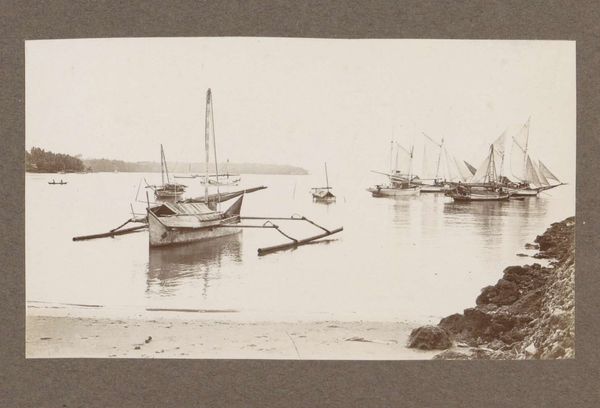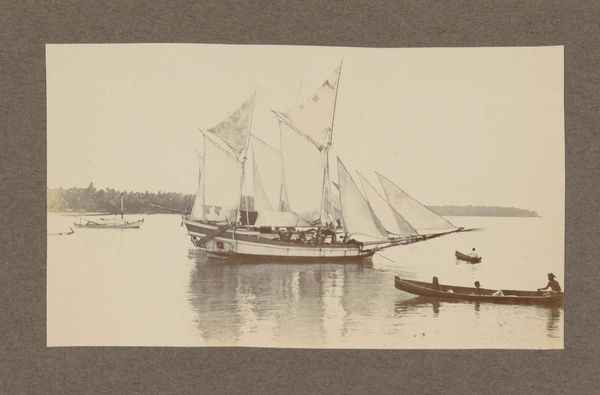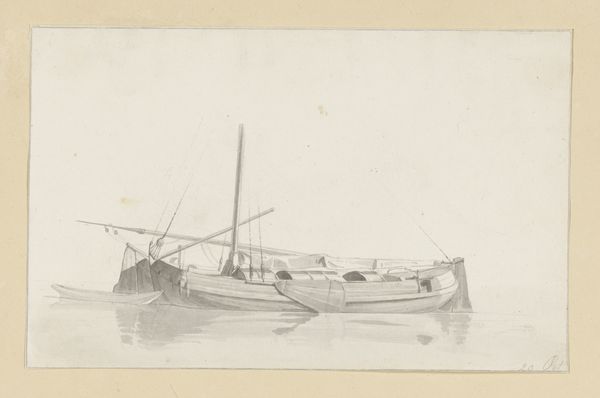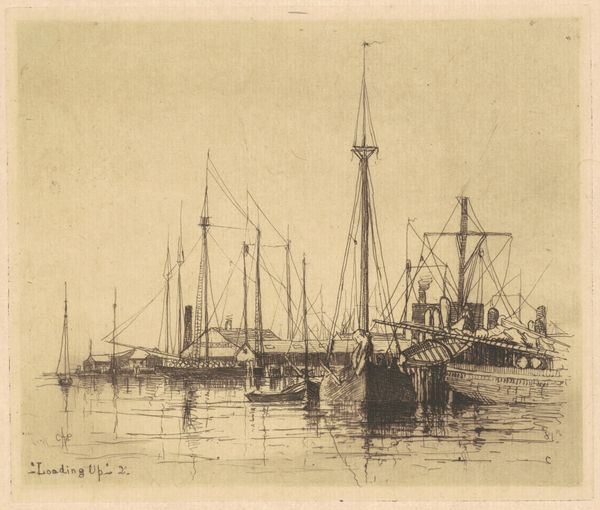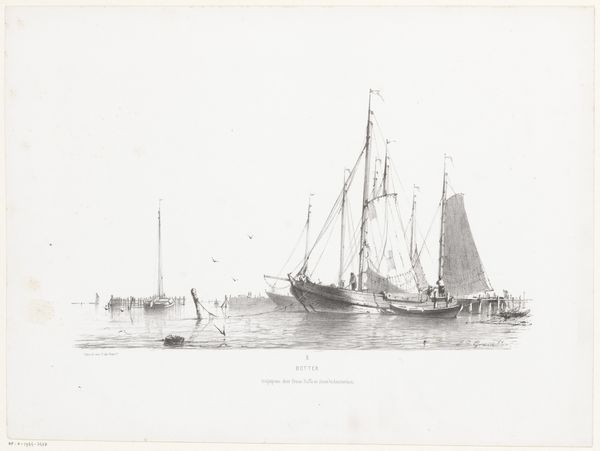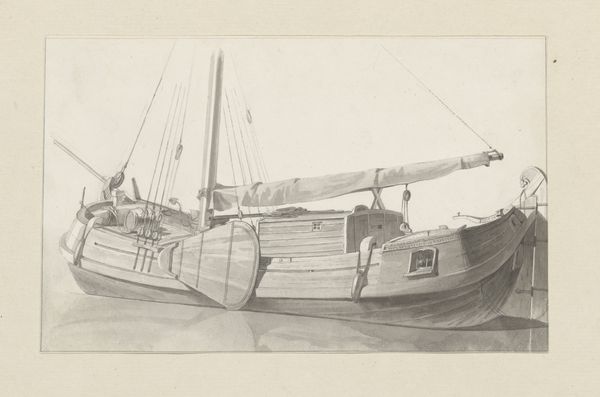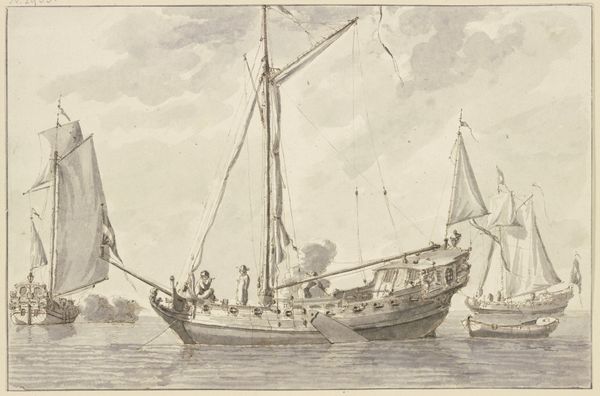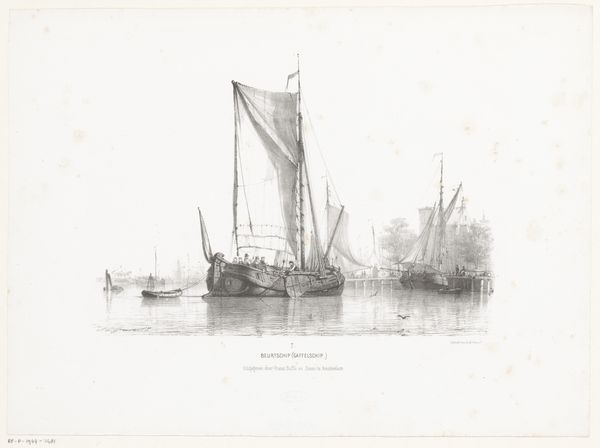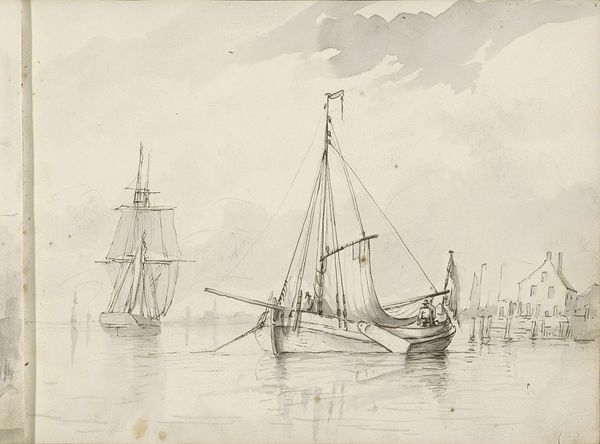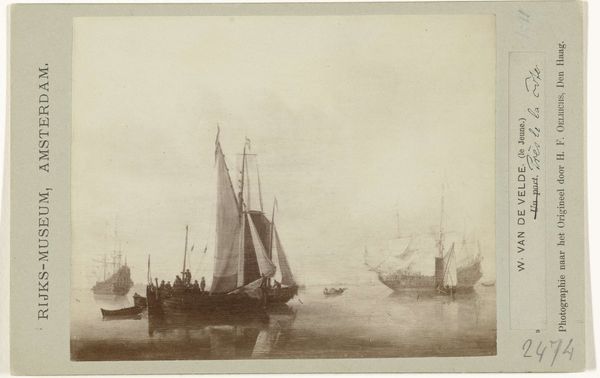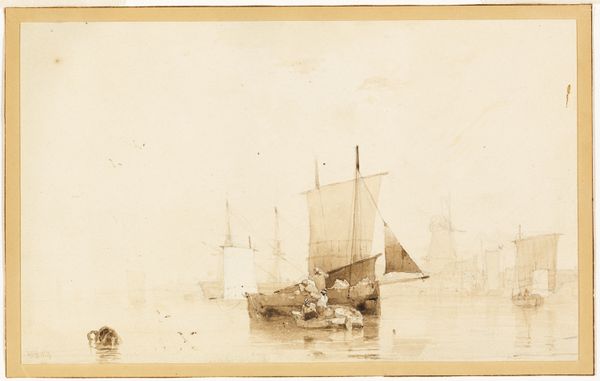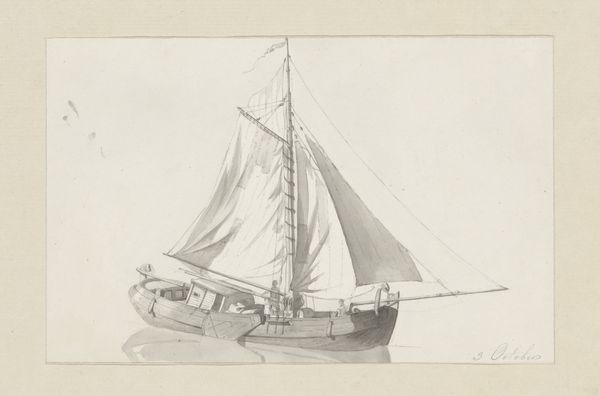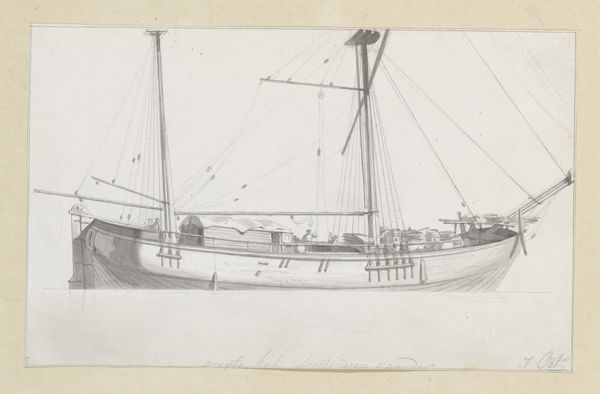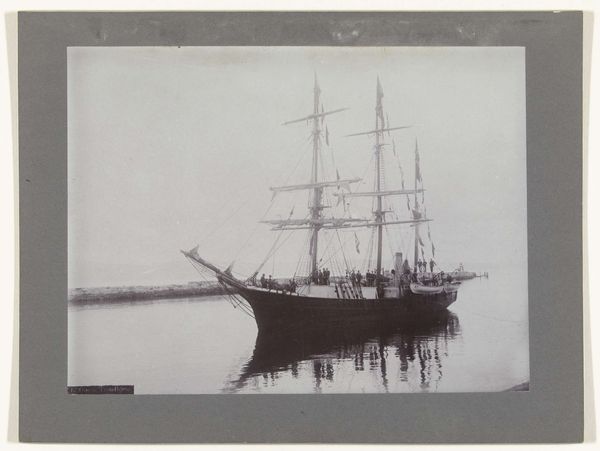
Zeilschepen met gehesen zeilen voor de kust van Nederlands-Indië c. 1920 - 1930
0:00
0:00
photography, gelatin-silver-print
#
landscape
#
photography
#
orientalism
#
gelatin-silver-print
Dimensions: height 72 mm, width 123 mm
Copyright: Rijks Museum: Open Domain
Editor: Here we have a gelatin silver print, taken sometime in the 1920s or 30s by Klaas Kleiterp: *Zeilschepen met gehesen zeilen voor de kust van Nederlands-Indië* – Sailing Ships with Sails Hoisted off the Coast of the Dutch East Indies. It’s quite a calm image; a fleet of ships seems to be waiting serenely just off the coast. What stands out to you? Curator: Ah, a peaceful slice of colonial-era maritime life, captured in that soft, almost dreamlike quality that gelatin silver prints often possess. What I see is not just a tranquil scene, but a visual whisper of power and trade. These aren't merely boats; they’re conduits, arteries of empire connecting the Netherlands to its resource-rich colony. The very act of photographing them – a European gaze upon this landscape – speaks volumes. What do you make of that "Orientalist" tag? Editor: That’s interesting… I hadn’t considered the colonial aspect so explicitly, but I see what you mean. And now the "Orientalism" tag feels heavier; I suppose it speaks to that outside gaze, exoticizing the scene for a Western audience? It's no longer just a landscape, but a representation. Curator: Precisely! The photographer, consciously or not, frames the scene through a lens tinged with Western expectations and desires. Think about the light – isn't there a touch of the painterly, almost theatrical lighting, as if staging an idea of the “exotic” East? What mood does it conjure for you, knowing this context? Editor: It shifts the whole piece, doesn't it? The tranquility feels… staged, almost. There's an underlying tension now, a sense of imbalance. The "landscape" genre suddenly feels inadequate. Curator: Exactly! It reveals how photographs can be so much more than simple documents. This image becomes a mirror, reflecting not just a place, but a relationship of power, desire, and the enduring legacy of colonialism. We went somewhere I wasn't anticipating! Editor: I totally agree, thinking about context adds so much depth and nuance that wasn't initially apparent. Thanks for enlightening me!
Comments
No comments
Be the first to comment and join the conversation on the ultimate creative platform.
